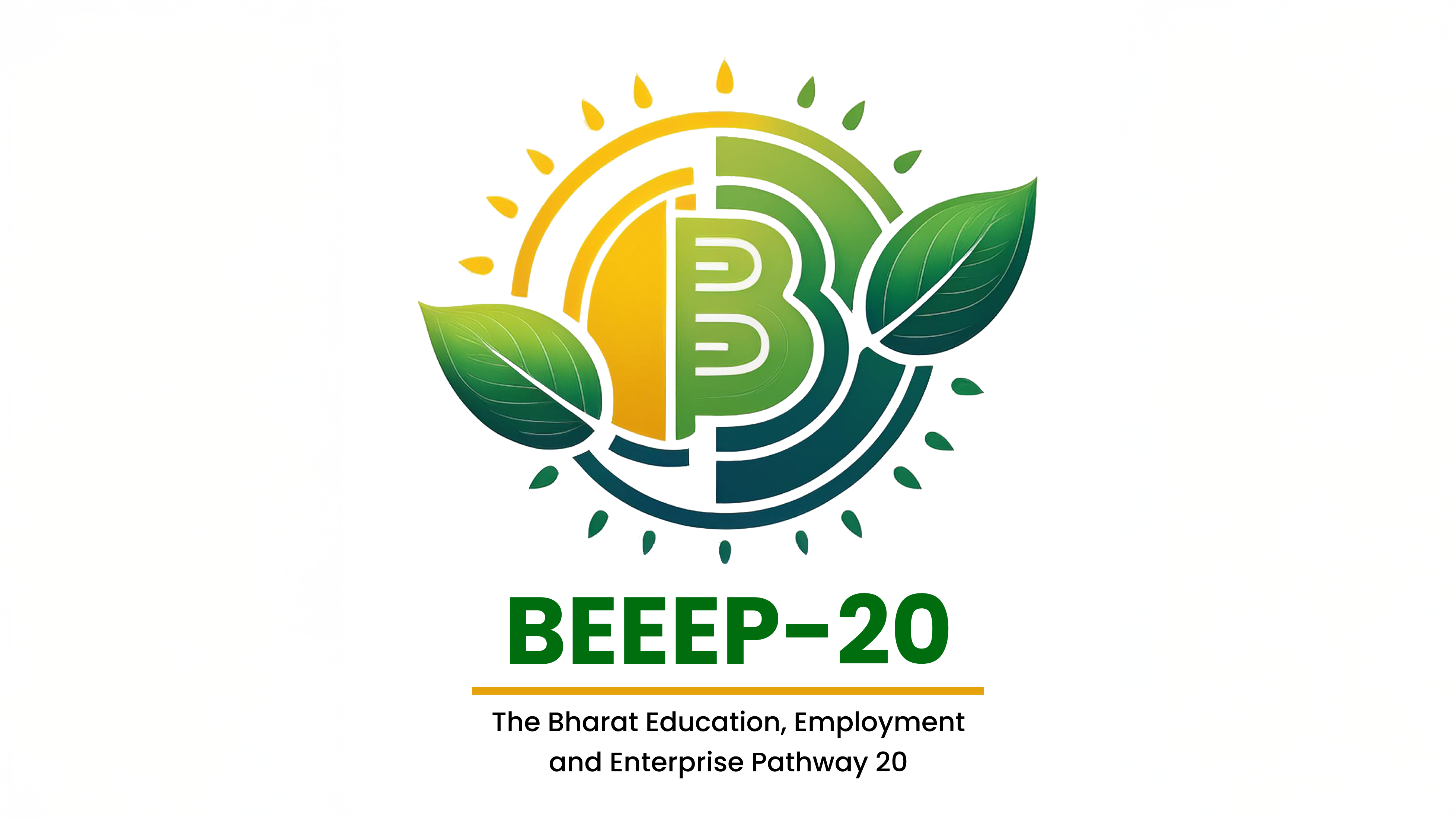
What is BEEEP-20 ?
The BEEEP-20 Initiative (Bharat Education, Employment and Enterprise Pathway 20) provides a visionary, structured framework to link education with career pathways, supporting India’s youth in developing the skills and resources needed to thrive in both traditional employment and entrepreneurial ventures. We look forward to collaborating closely with the Educational Institutions and Universities to drive this initiative forward for the collective benefit of our youth and industries.
BEEEP-20 Initiative, offers to a School Student a Pathway to get vocational education leading to either full employment by the age of 20; or, it could be career choices – either in Further or Higher Education or even through entrepreneurship. The Pathway is being discussed to be aligned with National Council of Vocational Education and Training’s Unique Student Database as, with that Government of India’s policy support in sponsorship of educational attainment of the student, could be planned in a smooth manner as it ensures enhancement of educational, employment and entrepreneurship development opportunities.
Our Objectives
- Vocational Education Reform: Align school-level vocational training with industry demands to enhance employability.
- Pathways to Employment: Define clear career pathways from secondary education to employment, leveraging programs like the PM Internship Scheme.
- Inclusion and Equity: Ensure that disadvantaged youth gain access to stipends and employment opportunities, supporting a smooth transition into the workforce by age 21.
- Continuous Skill Development: Create a lifelong career tracking and development framework via the BEEEP-20 ID system.
Methodology
Career and Vocational Education Pathway (CVEP)
- Each student will be assigned a Unique BEEEP-20 ID, a personalized ID tracking their career and vocational achievements.
The NSQF Desk will serve as the nodal agency, managing a digital platform for monitoring student progress.
Center of Excellence for Cooperative Research and Innovation for Sustainable Heritage of India (CoE-CRISHI)
-
This National Academic Nodal Institution (NANI) will provide centralized resources and guidance.
-
Zonal, State, and District Academies (ZANI, SANI, DANI) will support CoE-CRISHI’s mission.
District-Level Implementation
-
A district with its strong industrial and agricultural base, can be proposed as the pilot district in a state.
-
Focus sectors include AgriTech, private security, and healthcare.
Collaboration and Stakeholders
- NSQF Desk, State Government: Act as the state’s coordinator, integrating career education initiatives across departments.
- Educational Institutions: Partner with schools and universities for both vertical and horizontal program alignment.
- Industry Partners: Collaborate with top-500 Indian companies through the PM Internship Scheme, with provisions in the Union Budget 2024.
Interventions
- Unique BEEEP-20 ID: A lifelong vocational and career tracking ID for recording each student’s educational & career milestones.
- Stipends and Internships: Tie educational progress to stipends and job placements under the PM Internship Scheme.
- Sectoral Incubators: Use existing incubator models (e.g., the private security incubator) as templates for expansion into additional sectors.
Scalability and National Implementation
- Pilot District Implementation: Initial deployment in one district, with phased expansion to other districts based on evaluation outcomes.
- Sectoral Expansion: Begin with high-priority sectors (AgriTech, security, health) and gradually cover a broader range of industries.
- Progressive Engagement: Involve additional directorates over time to foster comprehensive cross-departmental collaboration.
